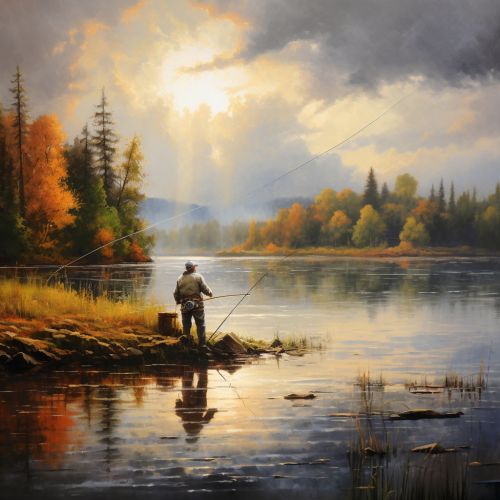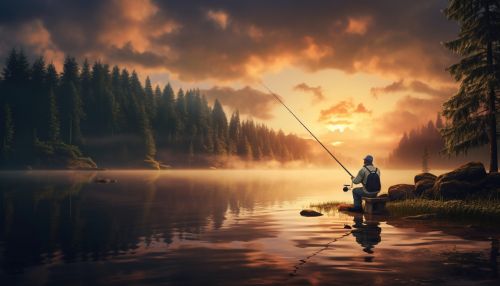Fishing season
Overview
Fishing season refers to the specific times of the year when certain species of fish can be legally caught in specific bodies of water. This period is determined by local, regional, or national authorities to maintain the sustainability of fish populations and to protect the ecosystem. Fishing seasons are typically set based on the life cycle of the fish species, including their spawning times, and the health of their populations population dynamics.
Rationale
The establishment of fishing seasons is a critical component of fisheries management. It is a regulatory measure aimed at preventing overfishing and ensuring the sustainability of fish stocks. Fishing seasons are typically set to allow fish species to spawn and replenish their populations. They also help to maintain the balance of the ecosystem by ensuring that predator and prey species are kept in check.


Determining Fishing Seasons
Fishing seasons are determined by a variety of factors. These include the life cycle of the fish species, their spawning times, the health of their populations, and the need to maintain the balance of the ecosystem.
Life Cycle of Fish
The life cycle of a fish species is a primary factor in determining its fishing season. This includes the times of year when the fish spawn, grow, and mature. Fishing seasons are often set to avoid the spawning period of a species, allowing them to reproduce and replenish their populations.
Spawning Times
Spawning times are a critical factor in setting fishing seasons. Fish species typically have specific times of the year when they spawn, and these periods are often protected by closing the fishing season. This allows the fish to reproduce without the pressure of fishing, helping to maintain their populations.
Health of Fish Populations
The health of fish populations is also a key factor in setting fishing seasons. If a fish species is overfished, its population may decline, leading to a closed season until the population recovers. Conversely, if a species is abundant, the fishing season may be extended to allow for more fishing opportunities.
Ecosystem Balance
Maintaining the balance of the ecosystem is another important consideration in setting fishing seasons. This involves ensuring that predator and prey species are kept in balance. For example, if a predator species is overfished, its prey may become too abundant, disrupting the balance of the ecosystem.
Types of Fishing Seasons
There are several types of fishing seasons, including open seasons, closed seasons, and catch-and-release seasons.
Open Seasons
Open seasons are periods when it is legal to catch and keep a specific species of fish. The length of an open season can vary depending on the species and the region. During an open season, there may still be restrictions on the size and number of fish that can be caught.
Closed Seasons
Closed seasons are periods when it is illegal to catch a specific species of fish. These are typically set during the spawning period of a species to allow them to reproduce and replenish their populations. Closed seasons may also be set if a species is overfished or if its population is in decline.
Catch-and-Release Seasons
Catch-and-release seasons are periods when it is legal to catch a specific species of fish, but they must be released back into the water. This type of season is often used as a conservation measure to allow fish populations to recover while still allowing fishing activities.
Fishing Season Regulations
Fishing season regulations vary by region and species. They are typically enforced by local, regional, or national authorities. Violations of fishing season regulations can result in fines, loss of fishing privileges, or even criminal charges.
Impact on Recreational and Commercial Fishing
Fishing seasons have a significant impact on both recreational and commercial fishing. They determine when and where anglers can fish, and what species they can target. For commercial fishermen, fishing seasons can affect their livelihoods, as they must plan their fishing activities around the open seasons for the species they target.
